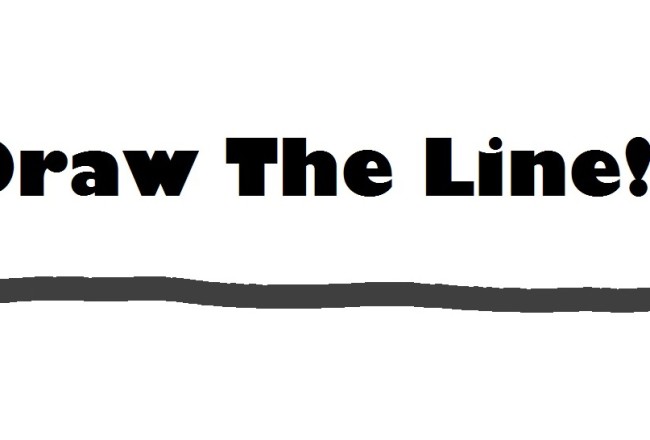I love the holidays. And I truly love to watch all the great things people do to give back during the season. Whether its buying hundreds of turkeys, toy drives, gathering blankets, driving around handing out care packages, serving at soup kitchens, sending care packages to the troops, raising money…etc etc the holiday season charitable surge leaves most charities stocked with goods and flush with cash. Great stuff! But it falls a tad short of rounding out the rest of the year for most charities. Want to change the world together? Pick another day. Just one more day. Any day outside of November or December. Maybe a birthday, anniversary, or even a loved one’s special day, just pick it. If every single person who gave money, gathered items, volunteered, or help raise cash did it one more day a year, the world would be an incredible place…
I recently was negotiating a settlement on behalf of a client. There was an issue that came up and the escrow money that was being held was now frozen. My client offered $5k “go away money”, the opposing side wanted $300K, then after much going back and forth demanded $60K. My client was still outraged and was staring in the face of a long drawn out litigation that could cost tens of thousands of dollars. I suggested that the other side was looking at the same costs and it was time to show them the line. We gave them till 5PM on Friday (48 hours) to accept $5,500 or they should file suit. They agreed at 4:30pm in the 47th hour. The strategy of drawing the line is a dangerous one. But sometimes effective as it was in this case. Going up $500 when they were demanding tens or thousands…
Fire phasers! That’s the command that Captain Kirk would often give to his crew to thwart the latest threat to the Enterprise. As a business owner, much like the dear captain, sitting at the big desk is often like being at the helm of a star ship. Hundreds of requests daily pour in through emails, telephone, and in-person pop up meetings. These requests include: employee raises, charity donations, advertising opportunities, budget changes, inventory blow outs, etc etc. And what is the usual answer? NO, NO, NO! Don’t be the next no! Get them out of their command post, away from the phaser trigger, and far from their crew that will dispatch you. If you can, meet with business owners outside of work, say a charity or a sporting event. A round of golf can get you plenty of face time and opportunity…
Who’s the most important person in a negotiation? You? Nope….if you feel that way, and they perceive you do not value their position or them as a person, you will most likely lose or not get the sale. You must make them feel important, and you need to believe that they are. But this is probably another 90/10 rule, as it is much more powerful for your subject/opponent/potential customer to feel important. You believing it is probably less crucial, especially if you are a good actor. A VP of sales I used to work with was nick named Rambo, because he never lost the deal. He slayed meetings and I couldn’t figure out why. Our corporate psychologist (longer story) clued me in. He said to me “he’s like Eddie Haskel, over complimenting his potential customers”. Once I was wise to his ways,…
It happens. You step into the negotiation room and the beast emerges from the opposition. Immediately taking an fighting stance, launching into attacks on your position, and aggressively looking to change your mind through his assault, and overall just an ornery figure. Don’t buy it, don’t give an inch, just listen and understand what you are dealing with…. A mean ego. And yes, they absolutely can be defeated, often times easily. How you might ask? Mean egos are hungry and you need to feed it! Hungry for recognition, praise, acknowledgement and ability to be right. Therefore all you need to do is give it some nourishment it seeks. Like a hungry and crying baby, the mean ego once fed, is a smiling pleasure to be with! Similarly mean ego can turn into a mush and become a huge asset in a deal. Once upon a time we were selling a…
Ten reasons why feeding homeless people on the street is the wrong approach
November 11, 2014Ten reasons why feeding homeless people on the street is the wrong approach: It’s our community and we all share our space – We have zoning laws, code enforcement, and city planning for a reason. Some spaces are best for certain activities. The beach, downtown, and other places are not conducive for feeding the homeless. When we eat, nature calls – Feeding people then not having a clean and convenient place for them to use bathroom facilities will lead to impromptu use of public space as a toilet. People attending a meal should sanitize before eating. Your mother taught you better…wash your hands before you eat. Food handlers should be trained an properly dressed – Gloves, hats, hairnets, long sleeve coats and pants, closed shoes, and many other OSHA and health department regulations that professional soup kitchens can provide. You can’t do this on the street. And yes, it matters. Food…
The headlines are hard to believe. 90 Year Old Man Cited for Feeding The Homeless. Sounds crazy right? Who would threaten to arrest someone for helping people who are hungry? Very frustrated people trying to run a community. Well, here’s my take on the story. I know Arnold Abbott. I met him when I was chairman of Lifenet4Familes www.lifenet4familes.org and he used our kitchen and facility to operate his charity Love Thy Neighbor http://lovethyneighbor.org He since moved on and operates elsewhere. Arnold actually was at my first Pasta Dinner www.andyspastadinner.com and really saved the day as he help me get acquainted with the new commercial equipment we had at the our new kitchen. Here is a picture of that day (he even let me wear his coat) I consider Arnold a true advocate for the hungry. We share our passion for making sure people who…
Be a student. Get it in your head! Realize you’re at college to go to school (sounds dumb, but some of us thought we were there for different reasons). Treat it like a 9-5 job. Up in the morning, go to school all day, between classes hang at the library instead of your dorm. Only go home after dinner. 8 hours of class and studying, you’ll have plenty of time for fun afterwards. Dress like a student- It’s way to easy to dress like a slob. And it’s even easier to give the loser looking student in the class (yeah the one in sweats and bed head hair) a lower grade. If you don’t think looks matter with grades, you are sorely mistaken. Professors are humans and they behave like the rest of consumers. The nice packaging wins. Also, first impressions are huge. At least dress smart the first…
In negotiations there are three distinct authority tactic circumstances. No authority, limited authority and full authority. Each comes with assets and liabilities in the negotiation process. No Authority If you have no authority to negotiate you may have a great advantage. Say your a salesperson at a company and you are selling something to a potential client. Once you present the value proposition and it is turned down, and if you have no authority to adjust it, you have the ability to probe and ask “what would it take for the proposal/price to be acceptable”. Having no authority to change the proposal is an advantage in there is no pressure to be swayed by the prospective client. “Passing the buck”, “being the good cop”, “blaming a third party” are tools of this circumstance that can be used expertly. Limited Authority Just as it is defined, as a manager or person…
Often times in a negotiation the leverage changes from one party to another. Think about in business sales or buying a car, once the buyer tips their hand that they have chosen a certain deal, the sell side can sometimes be emboldened into applying what I feel is a dirty trick. Escalation. What ever the excuse is, the seller (in this case) would raise the price or terms even though the deal had been agreed to. They often use an authority tactic, think about the car salesperson that goes back to the “managers office” and comes back with a slightly elevated monthly payment. Full of apologies that the deal they thought they could offer was expired, or misstated. We also see the haircut tactic employed by the buy side. Imagine a buyer of a business under a contract that has a due diligence period contingency. The buyer then spends a…













